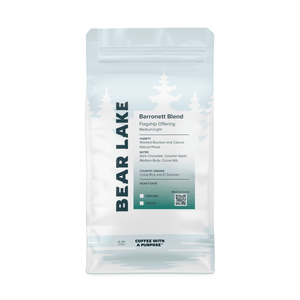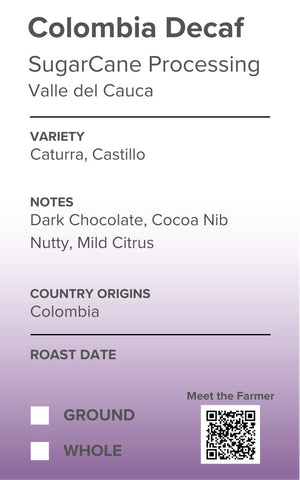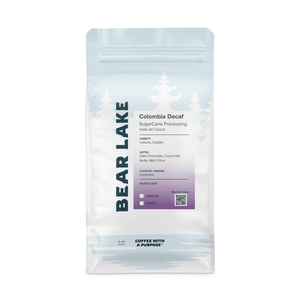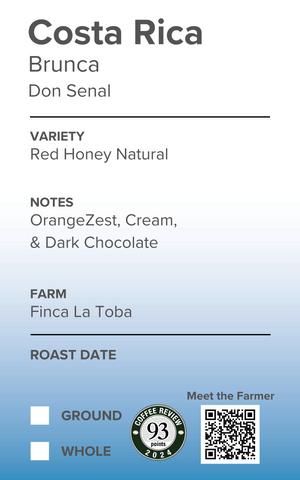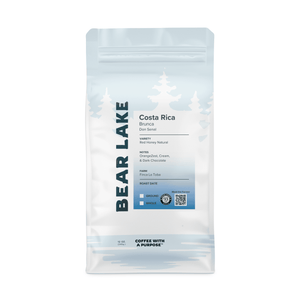Caring for Those Who Care for Us
Happy New Year to everyone! Thank you for a great 2022, we are excited to continue our movement in 2023!
I’d like to reflect on this past year, spotlight the El Salvador coffee industry and a non-profit we are supporting with our impact giving. Finally, I want to give special thanks to the advisors, partners, and customers who made our first year possible!
Reflection on 2022
In 2022, we kicked off the year emerging from the pandemic, rolled right into the Russo-Ukraine War in February, and experienced inflation and global tensions not felt in our lifetimes. How do we work our way out of these challenges and cultivate more harmony around the world? I think the answer lies in acknowledging and learning from our past and incorporating that learning into economic systems that reduce inequalities and promote more equitable wealth distribution— governance frameworks like the B Corp provide a wonderful vision of what is possible for this on a global scale. Our design to give involves the contribution of 2 percent of our revenues to communities supporting our coffee; this year we chose to focus on supply chain poverty & inequity.

Figure 1 - Bear Lake Coffee Co. Impact Business Model – Our 2022 Focus: “Supply Chain Poverty & Inequity”
Before I share information about the non-profit we contributed to this year, I want to share a little history on the coffee industry in El Salvador to help put context around this.
In the late 1800s, land reforms implemented by coffee barons stripped the properties of nearly half of El Salvador’s indigenous population. In the early 1900s coffee made up 90 percent of all of the country’s exports—Salvadorans called coffee “el grano de oro” (“the grain of gold”). During the Great Depression, coffee prices fell to one-third of previous levels, causing coffee producers to cut wages and dismiss many of their workers. Coffee rotted in the fields, rural unemployment skyrocketed, and discontent among the workers turned to anger. For three days in January 1932, indigenous workers organized and fought against the coffee barons, resulting in the deaths of around 30,000 indigenous people and the public hanging of one of the organizers, Feliciano Ama, on January 28, 1932.
In February of 2022, during my first origin trip to El Salvador, I had the opportunity to go to Izalco and commemorate the conflict of 1932 with Juliana Ama, the great-granddaughter of Feliciano Ama. During our ceremony I was overcome with emotions of confusion, helplessness, and sadness. Juliana reminded us that in the eyes of indigenous people coffee was more a “seed of discord” because it increased inequalities in land and wealth distribution.

Figure 2 – Juliana Ama in Izalco El Salvador – February 2022
Fast forward 90 years and the landscape is changing in El Salvador with the help of producers like Carlos & Patty Pola. As many of you know, the Polas are our founding producers and the magic behind our Morning Light coffee. When I visited their farms last year, I saw firsthand how they empower and respect the cultures of the indigenous workers. They are a shining example of how producers can honor their challenging pasts and embrace progressive practices that protect the land and honor the local communities behind their coffee.

Figure 3 – Carlos Pola – in Juayua, Sonsonate, El Salvador 2022
One small step we have taken this year is to help Carlos and Patty help reverse the effects of the “seeds of discord” by donating to the Cuidando A Las Que Nos Cuidan (“Caring for those who care for us”) This organization is a non-profit powered by the descendants of the indigenous displaced by the conflict of 1932 who today focus on building awareness and solidarity and preserving ancestral practices that include midwifery, the protection of the native language (Nahuat), history. and culture. The Polas and Bear Lake Coffee Co. believe coffee can become “the seed of harmony” that builds a more regenerative economy for tomorrow.

Figure 4 – Carlos & Patty Pola – in Juayua, Sonsonate, El Salvador 2022
Closing Thoughts
It’s been an amazing first year filled with making new connections and learning. I want to give a special thanks to our advisory board and strategy consulting team for 2022, which included Tony Riffel, Ben Damiani, and the ERBN @ UW Madison. Next, I want to thank our partners who helped us operationalize our online storefront and achieve our Pending B Corp certification! These included Pola Coffee, Impact Growth Partners, Rockridge Venture Law, Biscuit Studios, Tekwani Design Co., Roam Bravely, Firelight Coffee, Firedancer Coffee Consultants, Eurofins Environment Testing (USA), Moccamaster (USA), and many more. And finally to our very first corporate customer, KLDiscovery, and all of our member-subscriber customers for taking the step and believing in us in our early days! Without you our movement would not be possible! Thank you for supporting our movement!
Sources:
Russo-Ukrainian War - Wikipedia
https://www.cuidandoalas.org
Izalco - Wikipedia
EL Salvador Coffee A Bitter Sweet History
KLDiscovery - Global eDiscovery and Managed Review
Subscribe – Bear Lake Coffee Co.






